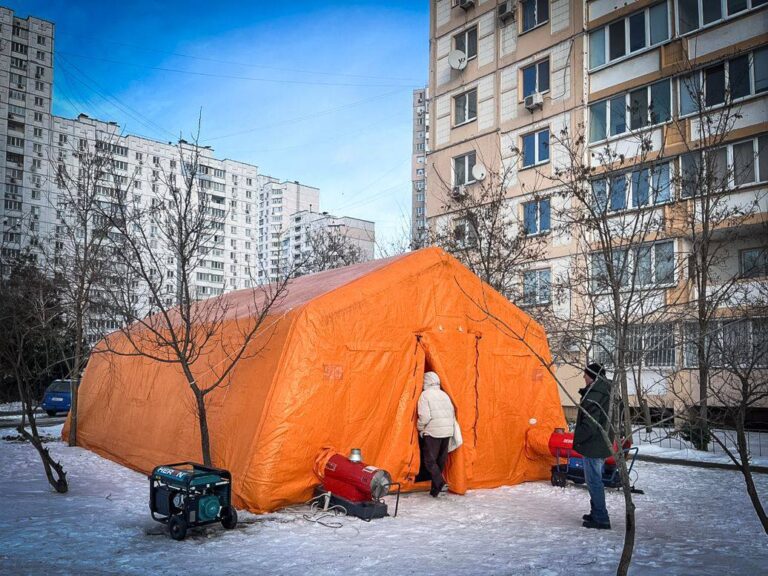
Can abortions be banned in Ukraine: what stands behind the Ivano-Frankivsk city council’s proposal
In June 2025, the Ivano-Frankivsk City Council unexpectedly found itself at the heart of a national debate. Local deputies supported an appeal to Ukraine’s central government, urging constitutional amendments that would ban abortion by legally defining life as beginning “from conception to natural death.” Technically, this is just a declaration. But the substance is deeply alarming not only because of its political or moral implications, but primarily due to its challenge to fundamental human rights.
What exactly is being proposed?
According to official statements, the Ivano-Frankivsk City Council suggests:
- Amending the Constitution to recognize life from the moment of conception
- Enacting a nationwide abortion ban
- Creating a law to protect human life from conception to natural death
- Reestablishing a Ministry for Family Affairs
- Introducing “family life” courses in school curricula
- Providing government payments for childbirth: ₴100,000 for the first child, ₴200,000 for the second, and ₴300,000 for the third and subsequent
- Offering housing for families with multiple children
At first glance, these proposals appear framed around noble intentions: addressing demographic decline, supporting families, encouraging childbirth. But beneath the surface lies a more troubling agenda.
What is the legal basis for the appeal?
The deputies cite several articles of the Constitution of Ukraine:
- Article 3: “A person, their life and health, honour and dignity, inviolability and security are recognized in Ukraine as the highest social value.”
- Article 16: “Ensuring environmental safety and preserving the gene pool of the nation is the duty of the state.”
- Article 27: “Every person has the inalienable right to life.”
Based on these, supporters argue that if life is the highest value, then the state must protect it even before birth. However, this interpretation not only remains legally questionable it also contradicts other key constitutional rights.
What rights would this initiative violate?
- Article 28: “Everyone has the right to respect for their dignity. No one shall be subjected to torture or cruel, inhuman, or degrading treatment.”
➤ Forcing someone to carry an unwanted pregnancy including cases of rape or life-threatening conditions can amount to inhuman treatment. - Article 32: “No one shall be subjected to interference in their personal and family life.”
➤ State interference in reproductive decisions is a clear violation of privacy. - Article 49: “Everyone has the right to healthcare.”
➤ Banning abortion even in medically necessary cases (e.g. ectopic pregnancy, sepsis, fetal abnormalities) undermines the right to medical care. - Article 64: “Constitutional rights and freedoms may not be restricted except as provided by the Constitution.”
➤ Under martial law, amendments to the Constitution are explicitly prohibited by Article 157. - Article 22: “Constitutional rights and freedoms are guaranteed and cannot be abolished.”
➤ Assigning legal status to embryos to reduce women’s rights contradicts this principle.
What about international standards?
Ukraine is party to several binding international treaties:
- UN Convention on the Elimination of All Forms of Discrimination Against Women (CEDAW): Guarantees access to reproductive healthcare.
- UN Convention on the Rights of the Child: Does not recognize embryos as legal children from conception.
- European Convention on Human Rights: The European Court of Human Rights has ruled that excessive abortion restrictions violate the right to private life (Article 8).
Violation of these norms may lead to international legal consequences for Ukraine.
Why is this dangerous?
Banning abortions does not reduce their number. It only drives them underground and increases health risks. WHO data confirms: countries with strict abortion bans like Nicaragua, El Salvador, or Poland see higher maternal mortality and complication rates. In wartime Ukraine, this issue becomes even more painful. It’s not only about health it’s also about the trauma of sexual violence experienced by women in conflict zones. Forcing someone to carry a pregnancy under such conditions is a form of secondary victimization. This is not policy it is violence.
A populist package wrapped in “care”
The City Council’s proposals baby bonuses, housing support, a revived Family Ministry, school “family life” courses may look appealing on paper. In practice:
- Cash incentives without infrastructure don’t work.
No sum of ₴100,000–₴300,000 will compensate for lack of quality healthcare, childcare, inclusive education, and parental support. - “Family life” courses without sex education are misleading.
Without real sexual education covering consent, contraception, and safety, such courses do more harm than good. - A Ministry without real policy is just bureaucracy.
Ukraine currently lacks real support systems for women in crisis survivors of violence, single mothers, displaced families. Without them, no ministry will be effective.
Post List
What actually works?
Ukraine doesn’t need to look far international models and its own best practices show how to reduce abortions while respecting rights:
- Comprehensive sex education.
Countries like Denmark, the Netherlands, and Germany have among the lowest teen pregnancy and abortion rates thanks to early, respectful education. - Access to contraception.
According to WHO, every dollar invested in contraception saves over two in future healthcare and social costs. - Parental support.
In Finland, Iceland, France, parenting is supported by the state: free daycare, flexible work schedules, paid leave for both parents. This empowers women to choose motherhood freely, not under pressure. - Protection from violence.
Survivors of rape or domestic abuse need safety, not forced pregnancy. The state must offer psychological and medical help not coercion.
Reproductive coercion is a rights violation
Reproductive violence, as defined by international human rights groups, includes:
- bans on abortion
- restricted access to contraception
- coercion into or out of pregnancy
- lack of choice in family planning
As a signatory of CEDAW and related treaties, Ukraine is obligated to prevent such practices. The Ivano-Frankivsk initiative undermines these commitments and the country’s credibility as a European democracy.
What’s next?
Under Article 157 of the Constitution, amendments to the Basic Law are not legally possible during martial law. In other words, this is a political declaration not a viable legal step. But even after the war, such changes would remain unconstitutional and violate human rights. If Ukraine truly wants to raise birth rates, it should not ban abortion it should:
- reform healthcare
- support parenting
- implement comprehensive sex education
- ensure access to contraception
- respect women’s bodily autonomy
A democratic nation must not decide for a woman what she can or cannot do with her body. Real patriotism is not control it’s support. Not coercion but care. Not prohibition but freedom of choice.















